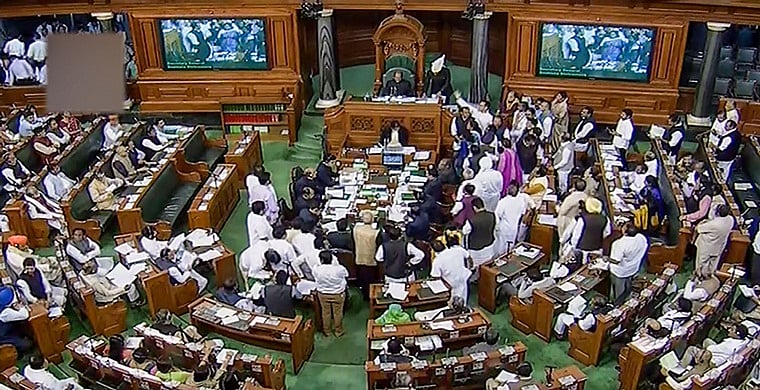The Narendra Modi government had introduced electoral bonds worth Rs. 1,000, Rs. 10,000, Rs. 1 lakh, Rs. 10 lakh and Rs. 1 crore to bring transparency in the election funding of the political parties in 2018. These bonds can be bought from selected branches of State Bank of India.
However, now in a series of revelations across various media platorms, based on documents received by RTI activists have shown how the concerns and reservations of the RBI and Election Commission were ignored by the ruling government.
So how exactly does the electoral bond scheme work?
The Modi government had on January 29, 2018, notified the electoral bond scheme. Electoral bonds were introduced through the Finance Act, 2017, to reduce the role of black money and increase transparency in political funding. It is like a promissory note that can be bought by any Indian citizen or company incorporated in India from select branches of State Bank of India. The citizen can then donate the same to any eligible political party of his/her choice.
Individuals and corporates buying the bonds can only pay for them by cheque or through digital transfers from KYC bank accounts. There is no limit on how much an individual or corporate can buy or a party can receive.
Who can receive electoral bonds?
Electoral bonds can only be encashed by political parties, which had secured at least 1 per cent of the votes polled in the most recent Lok Sabha or state election.
The amount received from electoral bonds will have to be deposited in a bank account verified by the Election Commission. All the transactions for electoral bonds can be done only through that account.
What laws had to be amended to introduce Electoral Bonds?
The Finance Act, 2017, had to be changed to introduced Electoral Bonds. Further, changes in the Reserve Bank of India Act, 1934, the Representation of People Act, 1951, the Income Tax Act, 1961, the Companies Act, 2013 and the Foreign Contribution (Regulation) Act, 2010 too had to be amended to allow specific aspects of the scheme.
The RBI Act had to be amended to enable an entity other than the RBI or the Union government to issue bearer bonds.
The Representation of People Act, 1951 had to be amended because it stipulated that for every donation of above Rs 20,000 to a political party, the name of the person donating and the amount donated had to be disclosed. Since the whole idea behind electoral bonds was to let the donor remain anonymous, they had to be exempted from this stipulation.
The Companies Act had to be amended as it stipulated that no company could donate money to a political party exceeding 7.5% of its average net profit over the previous three financial years. This provision had to be dropped, which meant any company could donate any amount to a political party.
The IT Act needed to be amended to allow anonymity of donors and a provision saying any donation beyond Rs 2,000 had to be through cheque, electronic transfer or electoral bonds.
The Foreign Contribution Act too was amended with retrospective effect to define Indian arms of foreign firms as not being a “foreign source” of funding. Earlier, Political parties were prohibited from receiving funds from foreign sources.
RTI reveals Modi govt’s lies; gives fresh life to the controvercy?
The Reserve Bank of India’s (RBI’s) repeated warnings on the electoral bond scheme in bearer form having the potential to increase black money circulation, money laundering, cross-border counterfeiting and forgery were ignored by the Prime Minister Narendra Modi government, as it was more keen on protecting the identity of donors, the Ministry of Finance’s responses to right to information (RTI) queries has revealed.
Similarly, the Election Commission too had serious reservations about the scheme but their views were also ignored. The newly revealed documents show is that they had repeatedly raised these concerns with the government in writing before the scheme was launched.
In fact, a file noting has revealed that Subhash Chandra Garg, Secretary of the Department of Economic Affairs in the finance ministry, took RBI’s defiance in the matter to mean indirect approval.
A look at the communication between then RBI governor Urjit Patel and then finance minister Arun Jaitley reveals that the government repeatedly ignored concerns raised by the central bank around the scheme.
The documents also show that bonds were allowed to be redeemed beyond the stipulated 15-day window in the build-up to the Karnataka assembly polls on the instructions of the PMO.
The documents also showed how then junior finance minister Pon Radhakrishnan had misled Parliament by insisting that the EC had not raised any concerns on the scheme and internal notes on how he could be bailed out of a privilege action brought in by the Opposition. The Opposition parties have used these revelations and whatever data is available on funding through electoral bonds to raise the issue in Parliament.










